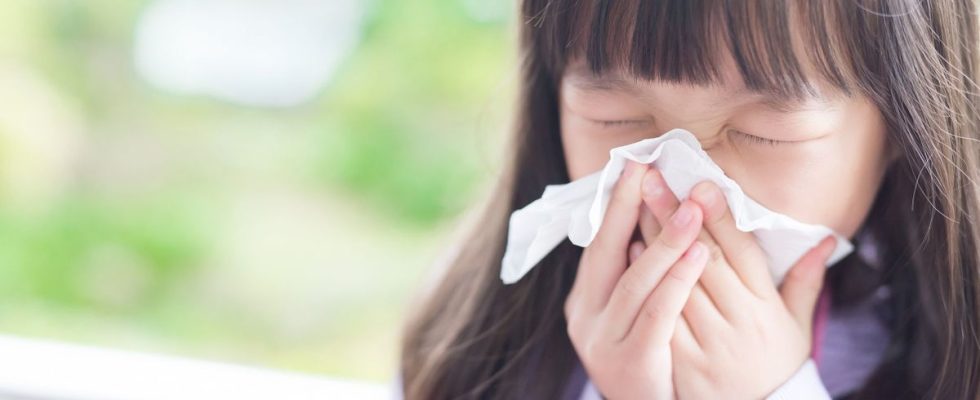Published on
Updated
Reading 3 min.
You have a runny nose ? Sneezing fits? Itches ? Or maybe you’re out of breath? Everything suggests that you are experiencing the return of seasonal allergic rhinitis, despite the absence of sun and mild temperatures. Caused by dust mites, animal hair or, seasonally, pollen, this condition can be treated with medication, but there are also gentler methods to alleviate the symptoms.
A benign medical condition, allergic rhinitis is no less debilitating on a daily basis, and even more so in spring – we then speak of seasonal allergic rhinitis – when the trees release their pollen into the air. According to data presented by Inserm in 2016, its frequency had quadrupled over the last thirty years, now affecting at least a quarter of the French population. While there are medications to prevent or alleviate the symptoms of allergic rhinitis, such as antihistamines or corticosteroids, simple actions can help affected men and women on a daily basis.
The importance of being informed
First of all, it is necessary to find out whether or not there is pollen around you, whether at home, at work, or even during leisure activities. The Ministry of Health recommends taking advantage of alerts from National Aerobiological Surveillance Network (RNSA) which provides regular bulletins via its official website and its mobile application ‘Pollen Alerts’. A practical tool that not only allows you to obtain pollen alerts from the monitoring network, but also to know the weather, air quality, and even obtain advice on relieving your allergies.
Information that can also be found on the official website of the Association of Sentinel Pollinariums of France (APSF) which allows you to obtain alerts on pollen emission periods in a specific location, no matter where you are in France. All sent by email upon simple registration.
Better to warn…
Simple actions can also help prevent seasonal allergic rhinitis, whether inside or outside the home. Until autumn, although spring remains the most favorable season for hay fever, it is essential to ventilate your home for at least ten minutes a day – a recommendation to actually follow throughout the year . The Ministry of Health recommends doing it “preferably” before sunrise and after sunset.
But that’s not all, it is also recommended to rinse and brush your hair in the evening to get rid of pollen and other allergens that may have been deposited throughout the day. Pollens are already a significant source of allergies, it is better not to combine them with other allergens: tobacco, household products, animal hair should be avoided during this period. The objective is to leave the pollen outside, hence the need not to ventilate the home during the day, or even not to dry your laundry outside.
The pollen season should not encourage allergic people to lock themselves in their homes. However, you should be careful not to be overexposed to pollen when going out or doing outdoor activities. This includes keeping the windows closed when traveling by car, but also avoiding – or reducing – physical and sporting activities, or garden maintenance, for example. An important detail: as masks have become part of the daily life of the general public since the Covid-19 pandemic, they are also necessary, if not essential, to reduce the risk of allergic rhinitis.
Natural tips
Despite all the precautions taken, the symptoms are there: runny nose, tingling and itching, and sneezing. Don’t panic, there are grandmother’s remedies and other natural tips that will not put an end to your hay fever, but will alleviate its symptoms. This may seem logical, but it is important to blow your nose regularly and wash your nose with a saline solution or physiological serum, which can also be used in case of eye irritation. Inhalations can also help relieve certain symptoms of seasonal rhinitis, with essential oils of lavender, eucalyptus and peppermint being particularly recommended – except in cases of pregnancy.
Who says grandmother’s remedy, says herbal teas. These can also be beneficial in relieving hay fever symptoms. Nettle is one of the plants that acts as an antihistamine, while peppermint has analgesic and anesthetic effects. Concocting infusions from these two ingredients would not only relieve runny noses and sneezing, but also itching. If that’s not enough, acupuncture can also be effective during this period prone to hay fever. Conversely, it is not recommended to succumb to spicy dishes, or even to consume alcohol, which would tend to promote allergies.

